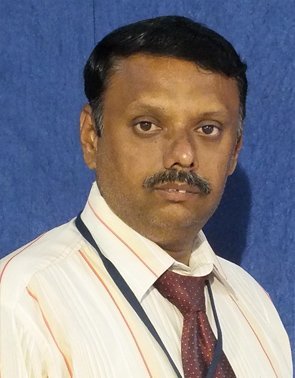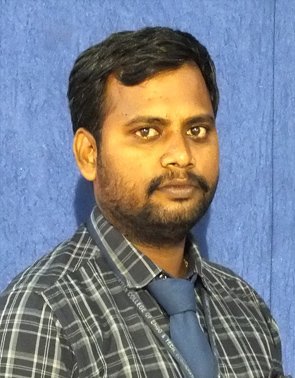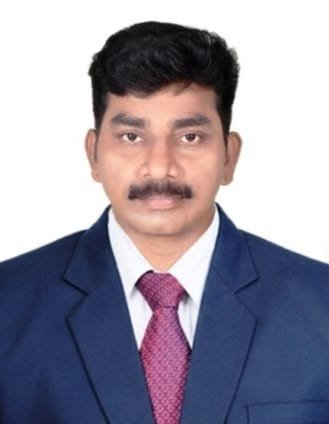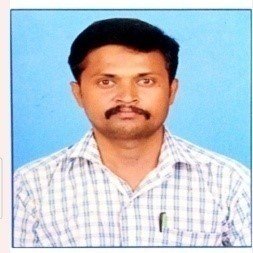B.E. Mechanical Engineering
- Home
- B.E. Mechanical Engineering
Introduction
The Department of Mechanical Engineering was established in the year 2009 with an intake of 60 students. Currently it has a combined strength of 120 students. The department boasts a team of qualified teachers/professionals skilled in grooming students for the greater responsibilities they have to shoulder in the years to come. Post graduate program (M.E –Manufacturing) was started in the year 2014.
Vision
To become a centre of excellence in Mechanical engineering, producing innovative and creative Mechanical engineers to meet the challenges the new environment poses.
Mission
- Imparting quality education in Mechanical Engineering to meet the global challenges.
- Enlightening the students as to their professional and ethical responsibilities and training them to build leadership and entrepreneur qualities for a successful career.
- Creating ample opportunities, also guiding students accordingly to acquire jobs.
Dr. P. L. Ramesh Kumar
Programme Educational Objectives (PEO’s)
Graduates of Mechanical Engineering Program will.
- PEO1: Excellence in professional career and compete globally to pursue higher education in the field of Mechanical Engineering.
- PEO2: Demonstrate core competency in solving complex Mechanical Engineering problems.
- PEO3: Engage in continuous professional development through constantly evolving technology for the industrial needs.
- PEO4: Emerge as successful entrepreneurs through innovations upholding the ethical values of society.
Program Specific Outcomes (PSO’s)
Graduates will be able to:
- Develop the process for extraction of oil from seeds, plastics and analyze their properties based on the concepts of thermal science.
- Design and implement product life cycle management for digital manufacturing process.
- Utilize composite materials to develop quality consumer goods at affordable prices.
Program Outcome
On completion of the B.E (Mechanical) degree the Mechanical Engineering graduates will be able to
- Engineering knowledge: Apply the knowledge of mathematics, science, engineering fundamentals, and an engineering specialization to the solution of complex engineering problems.
- Problem analysis: Identify, formulate, review research literature, and analyze complex engineering problems reaching substantiated conclusions using first principles of mathematics, natural sciences, and engineering sciences.
- Design/development of solutions: Design solutions for complex engineering problems and design system components or processes that meet the specified needs with appropriate consideration for the public health and safety, and the cultural, societal, and environmental considerations.
- Conduct investigations of complex problems: Use research-based knowledge and research methods, including design of experiments, analysis and interpretation of data, and synthesis of the information to provide valid conclusions.
- Modern tool usage: Create, select, and apply appropriate techniques, resources, and modern engineering and IT tools including prediction and modeling to complex engineering activities with an understanding of the limitations.
- The engineer and society: Apply reasoning informed by the contextual knowledge to assess societal, health, safety, legal and cultural issues and the consequent responsibilities relevant to the professional engineering practice.
- Environment and sustainability: Understand the impact of the professional engineering solutions to societal and environmental contexts, and demonstrate the knowledge of, and need for the sustainable development.
- Ethics: Apply ethical principles and commit to professional ethics and responsibilities and norms of the engineering practice.
- Individual and team work: Function effectively as an individual, and as a member or leader in diverse teams, and in multidisciplinary settings.
- Communication: Communicate effectively on complex engineering activities with the engineering community and with society at large, such as, being able to comprehend and write effective reports and design documentation, make effective presentations, and give and receive clear instructions.
- Project management and finance: Demonstrate knowledge and understanding of the engineering and management principles and apply these to one’s own work, as a member and leader in a team, to manage projects and in multidisciplinary environments.
- Life-long learning: Recognize the need for, and have the preparation and ability to engage in independent and life-long learning in the broadest context of technological change.

Dr. P. L. Ramesh Kumar, M.E., Ph.D., HoD of Mechanical
Mechanical engineering is one of the oldest and broadest engineering discipline, and plays a significant role in enhancing safety, economic vitality, enjoyment and overall quality of life throughout the world. A prerequisite for development is growth and that is directly related to production or output of a country. If production is done via a sustainable path it can maintain the sustainability of development.
The college has been simply unstoppable in its progress as it has been actively involved in various activities that have brought to light the hidden talents of the college students and staff. Mechanical Engineering is a professional Core engineering discipline that deals with the design, production and maintenance of any produce of any industry. The pride of every student and staff would be in his/her department and college. We are happy to share that many students are pursuing higher studies in leading universities in India and abroad. I am certain that our students will prove to be an invaluable asset to an organization. We, Mechanical engineers to build the nation.

M.E., Ph.d., MISTE.,
HOD / Professor

M.E., Ph.d., MISTE.,
Associate Professor

M.E., Ph.D.,
Assistant Professor

M.E.,
Assistant Professor

M.E.,
Assistant Professor

M.E.,
Assistant Professor

M.E.,Ph.d.,MISTE.,
Assistant Professor

M.E.,
Assistant Professor

M.E.,Ph.d.,MISTE.,
Assistant Professor

D.M.E.,
Lab Instructor

D.M.E.,
Lab Instructor

D.M.E.,
Lab Instructor

D.M.E.,
Lab Instructor
The department has 11 Laboratories that conform to the specifications laid down by Anna University to which the college is affiliated.
- Manufacturing Technology Lab
- Special Machines Lab
- Thermal Lab
- CAD/CAM Lab
- Mechatronics Lab
- Dynamics Lab
- Metrology Lab
- Fluid Mechanics Lab
- Strength of Materials Lab
- Sheet metal and welding laboratory
- Engineering practices Laboratory
Rank Holders
(i)UG Level

S.Saravanan
Rank: 39

Cibin George Mathew
Rank: 48

J.Jebaraj
Rank: 47
(iI)PG Level

J. Jebaraj
Rank: 8
ii) Ford India’s CSR (Corporate Social Responsibilities):- Initiative has sponsored a new Eco Sport Vehicle to the Department of Mechanical Engineering for learning and research purpose of students.

Association Activates
The Mechanical Engineering association provides a launch pad for the students where knowledge is shared, skills are developed, and technologies are understood and arousing into action. The dynamic Mech association marked its splendid start of this academic year.
The Mechanical Engineering Student Association has organized National Level Technical Symposium, National and International Conference, Seminars, Workshops, Guest lectures for the welfare of the student community.
The department trains and motivates students to attend on-Campus and off-campus placement programs. We inform all our stakeholders that the Mechanical Engineers of CCET are placed in companies like:
• M/s Delphi-TVS Chennai.
• M/s Sakthi Auto components Ltd,Erode
• M/s Genlite Kiriloskar Ltd,Chennai
• M/s Jayam Engineering and Tools ,Coimbatore.
• M/s Texmo Industries , Coimbatore.
• M/s CRI Pumps,Coimbatore.
• M/s Larsen and Toubro, Chennai.
• M/s KGK Industries , Coimbatore .
• M/s Lakshmi machine works , Coimbatore.
• M/s TI Cycles, Chennai.
• M/s Tractors and Farm Equipments, Madurai.
- Ramesh Kumar, L, Padmanaban, KP & Balamurugan, C 2016, ‘Optimal tolerance allocation in a complex assembly using evolutionary algorithms’, International Journal of Simulation Modelling, vol.15, no. 1, pp.121-132.
- Ramesh Kumar, L, Padmanaban, KP & Balamurugan, C 2016, ‘Least cost tolerance allocation based on Lagrange multiplier’, Concurrent Engineering: Research and Applications, vol.24, no. 2,pp.164-177.
- Ramesh Kumar, L, Padmanaban, KP, Ganesh Kumar, S & Balamurugan, C 2016, ‘Design optimization of concurrent tolerance in mechanical assemblies using bat algorithm’, Journal of Mechanical Science and Technology,vol.30,no.6,pp.2601-2614.
- Ramesh Kumar, L & Padmanaban, KP 2015, ‘Optimal manufacturing cost and quality loss by exponential cost-tolerance function’, Applied Mechanics and Materials, no.766-767, 1097-1102.
- Ramesh Kumar, L & Padmanaban, KP 2015, ‘Optimum tolerance allocation in mechanical assemblies by using fuzzy’, International Journal of Applied Engineering Research, vol. 10, no.5, pp.4610-4612.
- Ramesh Kumar, L, Padmanaban, KP & Balamurugan, C 2015, ‘Tolerance design of mechanical assemblies using genetic algorithm’, International Journal of Applied Engineering Research, vol. 10, no.4, pp.484-488.
- Ramesh Kumar, L & Padmanaban, KP 2015, ‘A genetic algorithm optimizer for engineering design’, International Journal of Applied Engineering Research, vol.10, no.39, pp.29535-29538
- John Martin.A, Ramesh Kumar, P.L & Karthikeyan V.S,2018.’Maufacturing Tolerance design using Monto carlo Method”TAGA Journal, vol.14, no.01, pp.2214-2221.
- S, Saravanan M, Ganesh kumar S, GT Machine Cell Formation Problem in Scheduling for Cellular Manufacturing system using Meta-Heuristic Method, Procedia Engineering Vol 38, 2012, Pages 2537-2547
- Karthikeyan S, Saravanan M, Ganesh kumar S, Design of worker assignment in a dynamic cellular manufacturing system by algorithms, International Journal of Mechanical and Mechatronics Engineering, Vol:14 No:06, Pages 114-121
- S, Saravanan M, Minimizing the number of voids and exceptional elements in multi-Dimensional Cellular Manufacturing system using Meta-Heuristic, International Journal of Applied Engineering and Research 2015,Volume 10 Pages 2495-2504
- S, Saravanan M, Ganesh kumar S, Designing an Incremental Cellular Manufacturing system by using a hybrid approach based on the Genetic Algorithm and Particle swarm optimization, International Journal of Enterprises and Network Management,2016, vol. 7(4), pages 322-333.
- S, Saravanan M, Rajkumar M, Optimization of worker assignment in dynamic cellular manufacturing system using genetic algorithm, Journal of Advanced manufacturing systems, Vol.15,No.01 pp 35-42(2016)
- S, P.Ganeshan Performance analysis of 2-methyltetrahydrofuran blended on bio-diesel engine, The Pakistan Journal of Biotechnology 2018, pp. 50-52
- John Martin,B.Prabu, S.Karthikeyan, V.S.Karthikeyan, Ashik, Blesson K Thomas, Blussan. K.K, Heldin Simon, Investigation And Analysis Of Hybrid Composites Natural Fibre From Papaya Stem And Sisal Plant, American Journal of Engineering Research, Volume-7, Issue-5, pp-200-207, 2018
- .S, Saravanan, Evaluation of Mechanical Properties of Bagasse/Palm Kernal Fibres for Fabrication of Automotive Brake Pads, Interciencia Journal,2020.
- S, Saravanan, Parameter Optimization of Mechanical Sheet Metal Forming of Multilayer Through Taguchi Method Interciencia Journal,2020.
- John Martin, K.P.Padmanabhan, R.Raja Sekar, Tolerance Allocation Using Hybrid Fuzzy-Monte Carlo Method, International Journal of Applied Engineering Research,2014, Vol. 9 page – 8791-8793.
- John Martin, K.P. Padmanaban , K. Thiagarajan, Manufacturing tolerance design based on fuzzy binary approach, Transactions of the Canadian Society for Mechanical Engineering, Vol. 39, No. 1, 2015, page – 85-96
- John Martin, K.P. Padmanaban, V.S.Thangarasu, Optimal tolerance allocation of mechanical assembly by using fuzzy binary range approach, International Journal of Applied Engineering Research, 2015, Vol. 10 page- 465-471.
- .John Martin.A, Ramesh Kumar, P.L & Karthikeyan V.S,2018.’Maufacturing Tolerance design using Monto carlo Method”TAGA Journal, vol.14, no.01, pp.2214-2221.
- Ganeshan, P. Raju, A. John Martin, D.S. Nethran, S. Raja, S. Kavin, N. Naveneeth Raj, M.R. Manikandan1, K. Raja, Design and fabrication of up de-salinator kit, The Pakistan Journal of Biotechnology 2018,Vol 14 page – 53-55.
- John Martin, B.Prabu, S.Karthikeyan, V.S.Karthikeyan, Ashik, Blesson K Thomas, Blussan. K.K, Heldin Simon, Investigation And Analysis Of Hybrid Composites Natural Fibre From Papaya Stem And Sisal Plant, American Journal of Engineering Research, Volume-7, Issue-5, pp-200-207, 2018.
- Ganeshan, P.Ramshankar , K.Raja , G.Vijayanand , S.Sangeeth Kumar , B.Prabu, Mechanical Properties of Madar/Bauhinia Racemosa Hybrid Composites, The Pakistan Journal of Biotechnology 2018,Vol 14, page 1369-1374
- Ranjithkumar , P. Ganeshan , P. Raju, B. Prabu , V. Mohanavel , S. Dinesha1 , S. Hariharan1 , S. Jayasuriya1 , G. Amarnath Design and Development of an automatic head lamp leveling systems for automobiles, The Pakistan Journal of Biotechnology 2018,Vol 14, page 120-122.
- John Martin, B.Prabu, S.Karthikeyan, V.S.Karthikeyan, Ashik, Blesson K Thomas, Blussan. K.K, Heldin Simon, Investigation And Analysis Of Hybrid Composites Natural Fibre From Papaya Stem And Sisal Plant, American Journal of Engineering Research, Volume-7, Issue-5, pp-200-207, 2018.
- Raja, B.Prabu, P. Ganeshan, V.S.Chandra sekar, B.Nagaraj ganesan Characterization Studies of Natural Cellulosic Fibers Extracted from Shwetark Stem, Journal natural fiber, 2020 Vol 14 page 1-12.
- Ramshankar , K. Raja , P. Ganeshan , P. Raju , V.S. Karthigayan , M. Lavanya , K.K. Pavithraa , H. Rajaraja Sozhan , M. Mohanamba Study on the mechanical properties of the natural fibre reinforced polymer composite materials, The Pakistan Journal of Biotechnology 2018,Vol 15, page 89-99
- John Martin.A, Ramesh Kumar, P.L & Karthikeyan V.S,’Maufacturing Tolerance design using Monto carlo Method”TAGA Journal, vol.14, no.01, pp.2214-2221.
- John Martin, B.Prabu, S.Karthikeyan, S.Karthikeyan, Ashik, Blesson K Thomas, Blussan. K.K, Heldin Simon, Investigation And Analysis Of Hybrid Composites Natural Fibre From Papaya Stem And Sisal Plant, American Journal of Engineering Research, Volume-7, Issue-5, pp-200-207, 2018.
- V. Jeyabalaji , G.R. Kannan , P. Ganeshan , K. Raja , “Extraction and Characterization Studies of Cellulose Derived from the Roots of Acalypha Indica L’, Journal of natural fiber , Taylor and Francis Jan 2022 Vol no 19 issue 12
- Ramkumar, B.Prabhu, V.R.Lenin, V.Jeyabalaji , ” Fatigue failure behaviour of horn mounting bracket using finite element analysis”, Volume 47, Part 1, 2021, Pages 355-365 science direct Materials today

